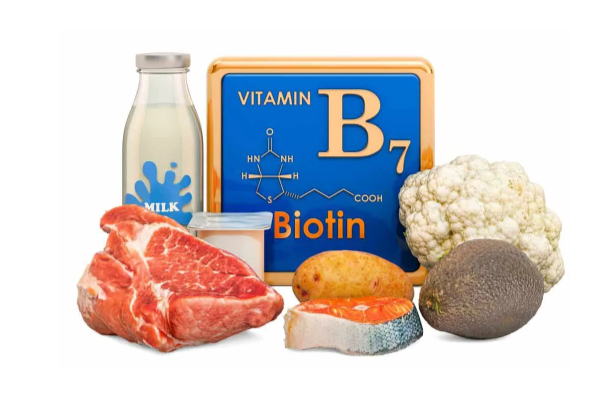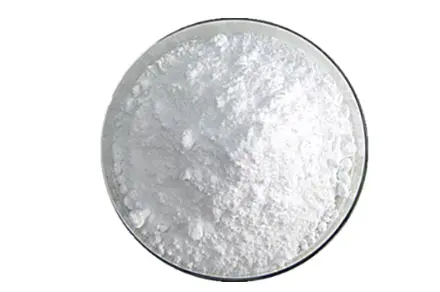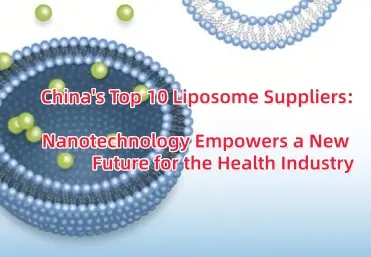Vitamin B7 (biotin) : health benefits, side effects,supplier
1. What is Biotin (Vitamin B7)?
Biotin, also known as Vitamin B7 ( Vitamin H), is a water-soluble B-complex vitamin that is essential for the growth and development of all living organisms.
Biotin has been shown to be important for many health factors, including support of nerve function, stabilization of blood sugar levels, DNA stability, and hair, skin and nail health.
2. Health Benefits of Biotin
1) Energy Metabolism Biotin is a coenzyme for carboxylases, enzymes that help metabolize fats, proteins and carbohydrates to produce energy. These enzymes are essential for the following processes: gluconeogenesis, the metabolic pathway that produces glucose from non-carbohydrate sources, including amino acids. Cellular energy production. Branched-chain amino acids (such as leucine, isoleucine, and valine) are used for neurotransmitter production and energy. Fatty acid synthesis and catabolism is used for energy . Insulin release]. Inadequate levels of vitamin B7 in the body can slow metabolism, which can lead to fatigue, digestive problems, and weight gain.

2) The brain requires biotin for functional myelin formation, a fatty substance that surrounds nerves and facilitates the conduction of nerve impulses. Therefore, biotin deficiency delays myelin formation. Biotin deficiency also causes many other neurological symptoms, including seizures, lack of muscle coordination, learning disabilities, hallucinations, depression, and lethargy. Most of these symptoms can be resolved with biotin supplementation. Multiple sclerosis is an autoimmune disease characterized by damage and loss of myelin. Given the role of biotin in fatty acid synthesis and energy production (both of which are necessary for myelin repair and axonal survival), it has been proposed that biotin may be effective in limiting, or reversing, the damage associated with multiple sclerosis . Indeed, 2 clinical trials of 177 individuals found that high-dose vitamin B7 treatment reversed disease progression and improved symptoms in patients with progressive MS. However, in another trial of 93 people with multiple sclerosis, the treatment had little effect on improving vision.
3) Immune System Function Vitamin B7 is essential for the development of white blood cells, and its deficiency has been linked to impaired immune function and increased risk of infection. It increases the production of Th1 cytokines such as IL-1β and IFN-γ, which are essential for triggering an immune response against bacterial and viral infections . Inadequate levels of vitamin B7 have been associated with reduced antibody synthesis, T-cell decay, and decreased numbers of splenocytes and T-cells in both animals and humans. Reduced rates of cell proliferation during biotin deficiency may be partly responsible for these adverse effects on immune function. Biotinidase is an enzyme that helps to recycle biotin, and deficiency of this enzyme is associated with chronic vaginal candidiasis, which can be treated with biotin supplementation. Since 1 in 123 people, are thought to have biotinidase deficiency, women with chronic vaginal candidiasis may respond to biotin therapy.
3. Side effects and precautions
If you notice any side effects after supplementing with biotin, contact your doctor or pharmacist. Biotin is generally considered safe and no toxicity has been reported with oral doses up to 300mg/day and intravenous doses up to 20mg.
Because it is a water-soluble vitamin, it is unlikely that vitamin B7 can be overdosed, as an overdose is excreted in the urine.
Nutritional/Drug InteractionsSupplement/herbal/nutritional drug interactions can be dangerous and in rare cases even life-threatening. Always consult your doctor before supplementing and let them know about all medications and supplements you are using or considering.
Lipoic acid, along with vitamin B7, competes for binding to the sodium-dependent multivitamin transporter protein (SMVT) in the intestines, so prolonged use of lipoic acid may result in decreased vitamin B7 levels.
Similarly, high doses of vitamin B5 (pantothenic acid) have the potential to compete with vitamin B7 for absorption by SMVT (sodium-dependent multivitamin transporter protein) .
Long-term use of tetracycline and sulfonamide antibiotics can reduce biotin levels because they kill biotin-producing bacteria in the gut.
In addition, some anticonvulsants, such as pramipexole and carbamazepine, inhibit the absorption of vitamin B7. Long-term use of anticonvulsants also increases the breakdown of vitamin B7.
4.Where to buy biotin(vitamin b7) powder?
Sost biotech is a professional supplier of vitamin series with many years of export experience and a number of certified patents. If you need to buy biotin, please contact us.

Contact us

 Food Additives
Food Additives









